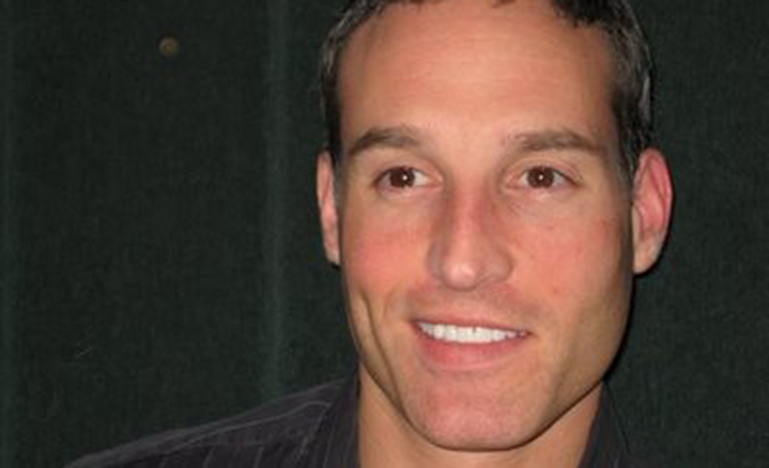The future of arbitration?
National interviews Lance Soskin, the founder of eQuibbly, a service that charges a flat rate to have arbitration cases adjudicated online by a former judge.

National: What did you have in mind when you launched eQuibbly?
Lance Soskin: Well we launched in 2012 but it was a very different app back then. We had both mediation and arbitration. Now we just focus on arbitration. At some point I decided that I needed to focus on something and not offer both mediation and arbitration. A lot of people got the two confused and I wanted to make it as simple as possible for people to use and understand. Trying to do both mediation and arbitration was just too big a task especially because educating the public is a part of it.
N: So why did you choose arbitration over mediation?
LS: I just thought it would be more amenable to offering flat rates instead of hourly rates. Most arbitration is done on an hourly basis and for my target market I didn’t think that people wanted it. People want to know what they’re getting into and how much exactly it’s going to cost them. So I wanted to offer flat rates and I also wanted people to actually get a decision out of it and to have a resolution to the dispute and a finality to it. With mediation you don’t necessarily know you’re going to get that because it’s really dependent on whether the parties can come to an agreement. It’s still in the hands of the parties to actually resolve it or not. So often times mediation is not resolved and you walk away paying money and you don’t really have a solution.
N: And how are those flat rates determined?
LS: Basically we categorize cases based on the complexity of the arbitration. So one metric is basing it on the number of pages of documentary evidence. So you know if it’s a 50 page document or agreement typically -- not always -- it’s going to be more complex and it’s probably going to take longer to resolve than a five page agreement. The other metric is the number of witnesses. We allow people to upload witness statements. If the judge wants, he can have a video conference or teleconference to interview the witness. So again, the more witnesses you have the longer it’s going to take and probably the more complex. So I based it on those two factors, the number of pages of documentary evidence and the number of witnesses.
N: How difficult is it to recruit judges for your service?
LS: It’s not easy recruiting judges for a few reasons. Number one, in most jurisdictions they can’t sit on the bench and do arbitration, they have to do one or the other. So basically I had to try find judges who had retired from the bench and were still interested in doing arbitration. But the next challenge was getting judges who typically aren’t used to doing things online. It’s not that difficult to learn how to use the application, but you still need someone who’s willing to learn and willing to do the arbitration online. Not everyone wants to do that having come from the bench. I also wanted judges that would do a good job with the customer. I want to provide customer service and a lot of judges aren’t used to that because they’re in a position of power and they don’t have to provide customer service. But I needed to find judges who understand that we’re answerable to customers.
N: Legal start-ups are a still a rare breed in Canada. What are some of the challenges you face?
A: Well you know, some legal start-ups in Canada are getting a lot of push back from the law society. However it hasn’t been an issue for eQuibbly and I don’t expect it to be. You know eQuibbly is not a law firm and we don’t give legal advice so it shouldn’t really be an issue. But I will say that the legal industry seems to be a few years behind other industries in changing the way it operates. And it’s always difficult getting people to change the way they’re doing things. You know, our legal system is more or less based on maintaining the status quo since it’s based on common law precedent. It’s the way that many lawyers think and it seems to be the way the law society operates. Of course, you really have to take a lot of things into consideration since they do have to regulate the industry and so there are no simple answers. At the same time, most good start-ups do push the envelope or try to push the envelope, and often – at least initially – they’ll attract a lot of criticism. So, perhaps we just need younger more forward thinking people running the law societies but I don’t really know what the right answer is.
N: What about on the client side of the equation? Who is your target market, and are you getting traction there?
LS: Yeah, people seem to be enthusiastic about the service. Our target market is low- to mid-income individuals who don’t have the time or don’t have the finances available to hire a lawyer to litigate for them. And we target small business. But there is still a marketing challenge. That’s because a large part of marketing is about educating the public about arbitration and its benefits as an alternative to litigation. This is a challenge because obviously many large companies know about the benefits and use arbitration quite extensively to avoid litigation. But most individuals and small businesses are not all that familiar with it. So for example, most people don’t realize that arbitration decisions are enforceable in court much like a judgement is. The difference is that you get to skip the costly litigation to get to the judgement. Most people don’t realize that because it’s not something that’s really publicized much. It’s a matter of getting the word out that we exist and about the benefits of arbitration over litigation.
N: How do you see the future of ADR playing out?
LS: Whether it’s ODR or ADR I do see it playing a much larger role in resolving legal disputes in the future, replacing the traditional court system in some situations and supplementing it in others. I don’t know if a lot of people realize this but in Ontario last year it took on average eight and a half months to dispose of a case in small claims court and in general civil court – for claims over $25,000 – it took on average over one and a half years. I do think that at some point, maybe within five years, certain types of civil disputes will no longer be afforded the right to be resolved in public courts at taxpayers' expenses or else the parties to a dispute will have to pay much higher fees to take their case to court. So I do think there is a big future for ADR and ODR in our justice system.


